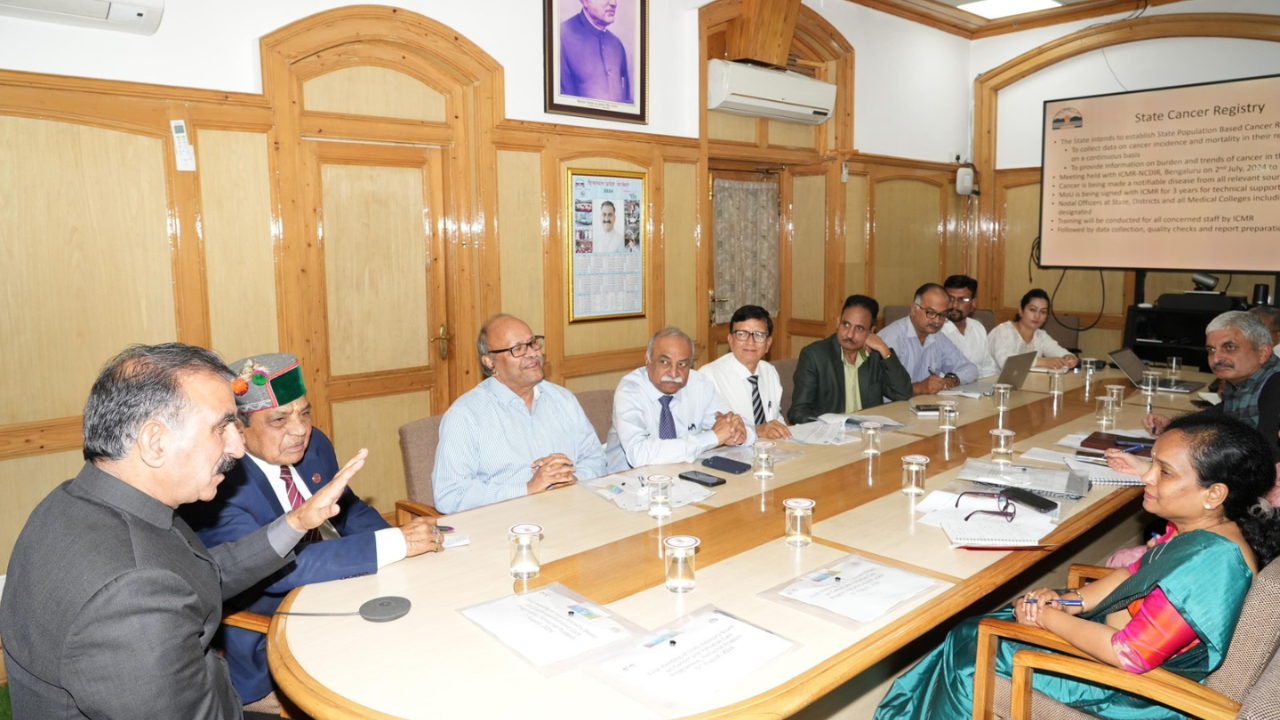MANDI/SUNDERNAGAR (Munish Sood)
In a significant step towards cervical cancer prevention in India, renowned gynaecologist Dr Alok Sharma has launched a nationwide awareness campaign to educate the public, medical professionals and policymakers on the importance of HPV vaccination and regular screening.
Dr Sharma, a consultant obstetrician and gynaecologist at the Maternal and Child Health Centre, Civil Hospital, Sundernagar, and a National Faculty for HPV Vaccination, has been actively leading initiatives aimed at reducing the burden of cervical cancer in India.
“Cervical cancer remains one of the leading causes of cancer-related deaths among Indian women. Yet, it is one of the most preventable cancers if detected early. Through this campaign, we aim to empower women with knowledge and access to preventive healthcare,” said Dr Sharma during the launch event.
Silent threat: Understanding cervical cancer
Cervical cancer originates in the cervix — the lower part of the uterus — and is primarily caused by persistent infection with the human papillomavirus (HPV). While HPV infections are common and often clear on their own, some high-risk strains can lead to cancer over time.
According to the HPV Information Centre, cervical cancer is a major public health concern in India:
- 1,22,844 new cases are reported annually.
- It is the second most common cancer among Indian women.
- It is the second leading cause of cancer-related deaths in women.
Who is at risk?
Several factors increase the risk of developing cervical cancer, including:
- Early age of first sexual intercourse
- Multiple sexual partners
- Smoking and poor nutrition
- Long-term use of oral contraceptives
- A weakened immune system
Symptoms: Why early detection matters
Cervical cancer often has no symptoms in its early stages, making regular screening essential. However, warning signs may include:
Vaginal bleeding between periods, after intercourse, or post-menopause
Persistent foul-smelling vaginal discharge
Can cervical cancer be prevented?
Dr Sharma emphasised that cervical cancer is largely preventable through three key measures.
- Education:
Raising awareness about risk factors, symptoms, and prevention is crucial in reducing cases. - Screening:
Routine screening helps detect precancerous changes before they turn into cancer. Common tests include:
• Pap smear test – Detects abnormal cervical cells.
• HPV DNA test – Identifies high-risk HPV infections.
• VIA/VILI test – Uses acetic acid or Lugol’s iodine to identify abnormalities. - HPV vaccination:
The HPV vaccine is a proven method to prevent cervical cancer by protecting against high-risk HPV strains. The Indian Academy of Pediatrics (IAP) recommends vaccination for girls aged 10-12 years.
FOGSI (Federation of Obstetric and Gynecological Societies of India) recommends vaccination for women aged nine to 45 years.
The vaccine is administered in 2 or 3 doses over six months, depending on the recipient’s age. “If widely implemented, HPV vaccination can significantly reduce cervical cancer cases and save thousands of lives,” said Dr. Sharma.





